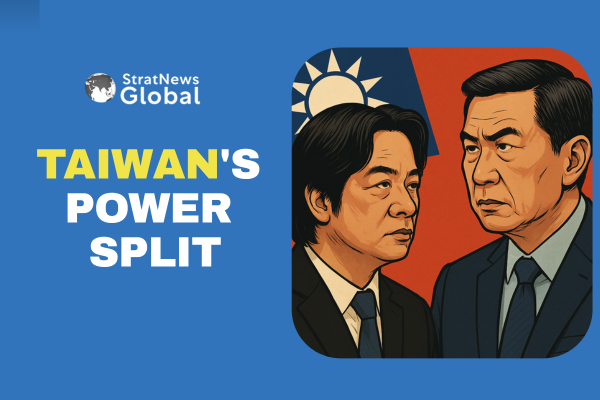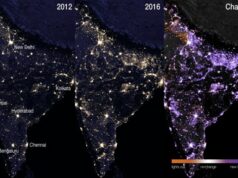Tensions in the Indo-Pacific have escalated this week following the outcome of Taiwan’s closely watched elections.
Lai Ching-te of the ruling Democratic Progressive Party (DPP) won the presidency, while the opposition Kuomintang (KMT) secured a majority in the legislature marking a rare split in executive and legislative control after Saturday (27th July) voting in Taiwan.
Taiwan also held the first round of its unprecedented “Great Recall” vote on 27 July, a mass recall effort targeting 24 Kuomintang (KMT) legislators, with a second round for seven more lawmakers scheduled for late August. This large-scale public effort, the biggest of its kind in Taiwan’s democratic history, allows citizens to unseat sitting lawmakers via district-level ballots triggered by petitions. All 24 KMT legislators survived the recall attempt.
This marks the first time Taiwan has experienced such a divided mandate, setting the stage for potentially uneasy cooperation between two deeply contrasting political forces. The Democratic Progressive Party (DPP), established in 1986 during Taiwan’s democratic transition, is widely regarded as pro-independence and sceptical of China, often championing a distinct Taiwanese identity and stronger defence ties with Western allies. In contrast, the Kuomintang (KMT), also known as the Nationalist Party, was founded in 1919 on the Chinese mainland. After losing the civil war, it relocated to Taiwan in 1949 and has since promoted engagement with Beijing through cultural and economic collaboration, favouring peaceful cross-strait relations.
Commenting on the political outcome, Suyash Desai, a political scientist specialising in China’s defence and foreign policy, in a conversation with StratNews Global noted: “This is the first time that two different parties are in power, with the DPP’s Lai Ching-te as President and the Kuomintang holding a parliamentary majority. Looking ahead, the KMT is likely to obstruct the DPP’s agenda in the legislature, potentially leading to policy paralysis.”
Suyash added, “Since the past 30 years, KMT has believed in deterrence through engagement. Thus, the KMT would push for policies of engagement with China on cultural, economic and other issues. This would also perhaps affect Taiwan’s defence posture and spending.”
Chinese Social Media Reactions
On Chinese social media platforms, the elections became a subject of ridicule, particularly among nationalist users known as “Little Pinks.” Many mocked the concept of democracy, sarcastically claiming that “in a democracy, losing is inevitable,” using such commentary to undermine Taiwan’s political system.
Although the term “democracy” is often restricted on Chinese platforms, posts criticising or mocking it were widely allowed in recent days. Phrases like “democracies are meant to lose” trended on platforms like Weibo, Zhihu and WeChat, aligning with Beijing’s anti-Taiwan and anti-Western stance.
Beijing Reacts Sharply
Reacting to the 27 July recall vote, where the KMT retained all seats, China’s Taiwan Affairs Office accused the DPP of deepening political polarisation and undermining democratic values. Spokesperson Chen Binhua accused the DPP of pursuing “one-party dominance” through pro-independence ideology and using repressive tactics to silence dissent, creating what he described as a “green terror.”
“The vote reflects growing discontent with the DPP’s political manoeuvring,” Chen said, suggesting the outcome exposes the party’s “hypocrisy” in promoting democracy while allegedly practising authoritarian control.
International Reactions And Historical Frictions
The British Defence Secretary said the UK would support Taiwan in any conflict with China in the Pacific, amid rising tensions.
On 27 July, Chinese Ambassador to Germany Deng Hongbo reaffirmed Beijing’s longstanding position on Taiwan’s sovereignty, declaring that “the historical and legal fact of Taiwan’s return to China is indisputable.”
China’s History of Election Meddling
China has faced repeated allegations of interfering in elections across the Indo-Pacific. From Taiwan to the Solomon Islands (2024), Australia (2016 & 2019), and the Marshall Islands (2023), Beijing’s influence operations have raised concern among democracies over political subversion tactics, often aimed at swaying public opinion or aiding China-friendly candidates.
What Lies Ahead
As Taiwan prepares for the second round of recall votes in August 2025, the stakes remain high. The failure of the first recall effort may embolden the KMT, but it also highlights the limits of the DPP’s current strategy. With a divided legislature and executive, Taiwan’s political system faces an internal stress test, while its external challenges most notably from Beijing continue to mount.
Taiwan’s political split will test President Lai’s leadership and the resilience of its democracy under pressure at home and from China.
Research Associate at StratNewsGlobal, A keen observer of #China and Foreign Affairs. Writer, Weibo Trends, Analyst.
Twitter: @resham_sng





